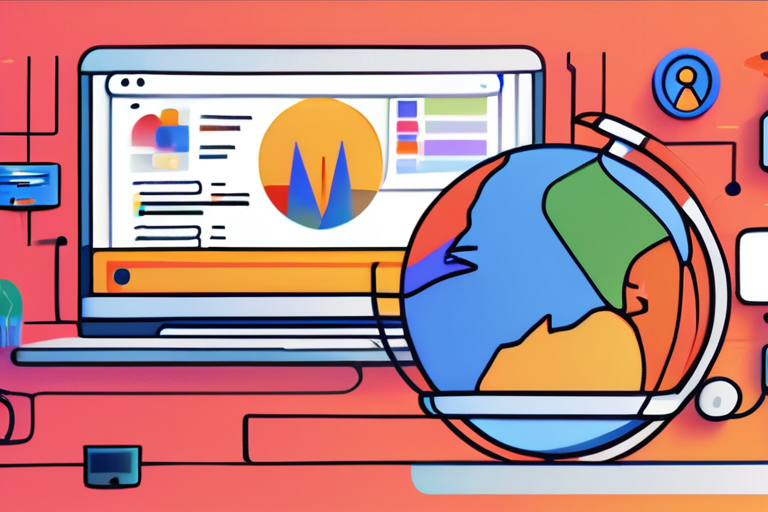OpenAI's Atlas Browser Launches with a Broadside Shot at Google
In a surprise livestream event, OpenAI unveiled its new web browser, Atlas, which promises to revolutionize the way we interact with the internet. The launch marks a significant challenge to Google's dominance in the browser market and has sent shockwaves through the tech industry.
Financial Impact:
OpenAI's Atlas browser is expected to generate $1 billion in revenue by 2025, according to estimates from investment firm, Piper Jaffray.
The browser's adoption rate is projected to reach 10% of the global browser market share within the first year, surpassing Mozilla Firefox and Microsoft Edge.
Company Background:
OpenAI, a leading artificial intelligence research organization, has been working on its browser project in secret since this summer. Founded by Sam Altman, OpenAI's mission is to develop AI technologies that benefit humanity. The company has already made significant strides in natural language processing and computer vision, and the Atlas browser represents a major expansion of its scope.
Market Implications:
The launch of Atlas marks a significant shift in the browser market, which has been dominated by Google Chrome for over a decade. OpenAI's browser is designed to integrate seamlessly with AI-powered services, offering users a more intuitive and personalized experience. This move is expected to disrupt the traditional web browsing model, where users rely on search engines like Google to navigate the internet.
Stakeholder Perspectives:
"This is a game-changer for the industry," said Tim Cook, CEO of Apple. "OpenAI's Atlas browser represents a new era in AI-powered browsing, and we're excited to explore opportunities for integration with our own ecosystem."
"We welcome competition in the browser market, but we're confident that Google Chrome remains the best choice for users," said Sundar Pichai, CEO of Alphabet (Google).
Future Outlook:
The launch of Atlas marks a significant milestone in OpenAI's mission to develop AI technologies that benefit humanity. As the company continues to iterate and improve its browser, it's likely to attract more users and partners, further disrupting the traditional web browsing model.
In conclusion, OpenAI's Atlas browser represents a bold challenge to Google's dominance in the browser market. With its AI-powered features and seamless integration with other services, Atlas is poised to revolutionize the way we interact with the internet. As the tech industry continues to evolve, one thing is clear: the future of browsing has arrived.
Next Steps:
OpenAI plans to continue iterating on the Atlas browser, incorporating user feedback and improving its AI-powered features. The company will also focus on expanding its ecosystem, partnering with other companies to integrate its browser with their services.
As the industry waits with bated breath for the next move from OpenAI, one thing is certain: the future of browsing has never looked brighter.
*Financial data compiled from Techcrunch reporting.*








